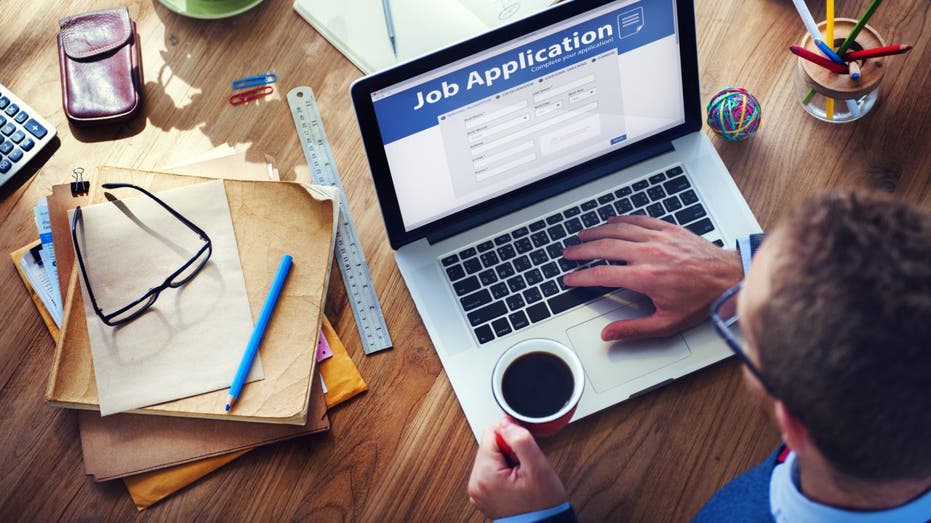Finance
Thank-you notes after a job interview: Best ways to stand out from the pack

After a job interview, it’s always wise to send a thank-you note to express gratitude to an interviewer for taking the time to meet or speak with you — and to reiterate your interest in the position you’re seeking.
To be sure, recruiters, HR pros and managers see many qualified applicants on a regular basis and receive many impressive thank-you notes as well.
So how can you make your thank-you note stand out from the pack?
CAREER CHALLENGE: HOW TO MATCH YOUR PERSONALITY TRAITS TO THE RIGHT JOB
Experts weighed in on how to make your thank-you note shine.
Craft a winning thank-you note
Writing a thank-you note isn’t a tough chore, so be sure to send it — and do it as soon as you can.
“It’s never too soon to send a thank-you note, and it should always be sent within 24 hours of the interview,” said John Feldmann, a senior communications specialist for Insperity in Houston, Texas.
“This demonstrates your timeliness and ensures that you remain top-of-mind with the interviewer.”
CHATTY COWORKERS CAN HURT YOUR CAREER: HERE’S HOW TO FIX THE ISSUE
Also, thank-you notes should be kept brief, sincere — and, most importantly, personalized, he said.
You should send separate notes to each individual with whom you interviewed.
“If the note is too long, employers will be less likely to read it due to their busy schedules,” continued Feldmann.
“It should state your enthusiasm for joining the company and recap how your qualifications are a fit for the role.”
TRAVELING FOR BUSINESS? 5 WAYS FOR WORKING BETTER FROM THE HOTEL ROOM
If you’re emailing your thank-you note, try to create an impactful subject line that stands out, enticing the recipient to open it and helping the person put a face to the note, Feldmann said.

Finally, don’t send out a group thank-you email if you’ve been interviewed by several people.
Each note, said Feldmann, should be personalized. You should send separate notes to each individual with whom you interviewed.
Reference specific points from your interview
Beyond an enthusiastic “thank you,” aim to recap discussion topics to impact your interviewer’s memory so that you can boost your standing in a pile of applicants.
CAREER CORRECTION NEEDED? THIS BEHAVIOR MAY BE HURTING YOU AT WORK
You might highlight points from your interview that you enjoyed speaking about, as well as what you learned or how the company’s values align with your own, said Kevin Wu, CEO of Pathrise in San Francisco, California.
“This will remind the interviewer of your conversation and leave a lasting impression,” Wu said.
Consider providing supplemental materials
Including supplemental materials with a thank-you note can be effective, said Feldmann, provided it directly relates to something you discussed in the interview or highlights skills that are required for the new role.
“Including irrelevant material could be seen as a distraction and work against you.”
“While this can help tip the scales in your favor, including irrelevant material could be seen as a distraction and work against you,” he also said.
Another good option, said Feldmann, is to recommend a book that may be relevant to your conversation.
REMOTE WORKERS RESIST MONDAY OFFICE HOURS, BUT BUILDING ‘ORGANIZATIONAL CULTURE’ IS KEY, SAYS EXECUTIVE
This demonstrates knowledge and provides a personal touch — and will help the interviewer remember you if the person does follow up on your recommendation, Feldmann said.
Share a clear statement of interest
It’s common for candidates to be interviewed in a back-to-back sequence.
So consider referencing a specific exchange between you and the interviewer — and how you might have been inspired by that discussion. It may resonate with the interviewer.

“Reminding the hiring manager of the discussion allows [the person] to think back on what was discussed and remember what set that specific candidate apart from the pack,” explained Jâlie Cohen, group SVP of human resources, Americas at the Adecco Group, who is based in Fort Lauderdale, Florida.
A good example of a candidate triggering the hiring manager’s memory could be something like the following, she said: “It was very helpful when you explained how you accepted two lateral moves before being promoted and how that helped you to better manage the full operations team.”
Finally, candidates should end a thank-you note with a clear statement that they remain interested in joining the organization, said Cohen — and how they will add value to the role and may plan to continue their career trajectory with the organization.
Read the full article here








